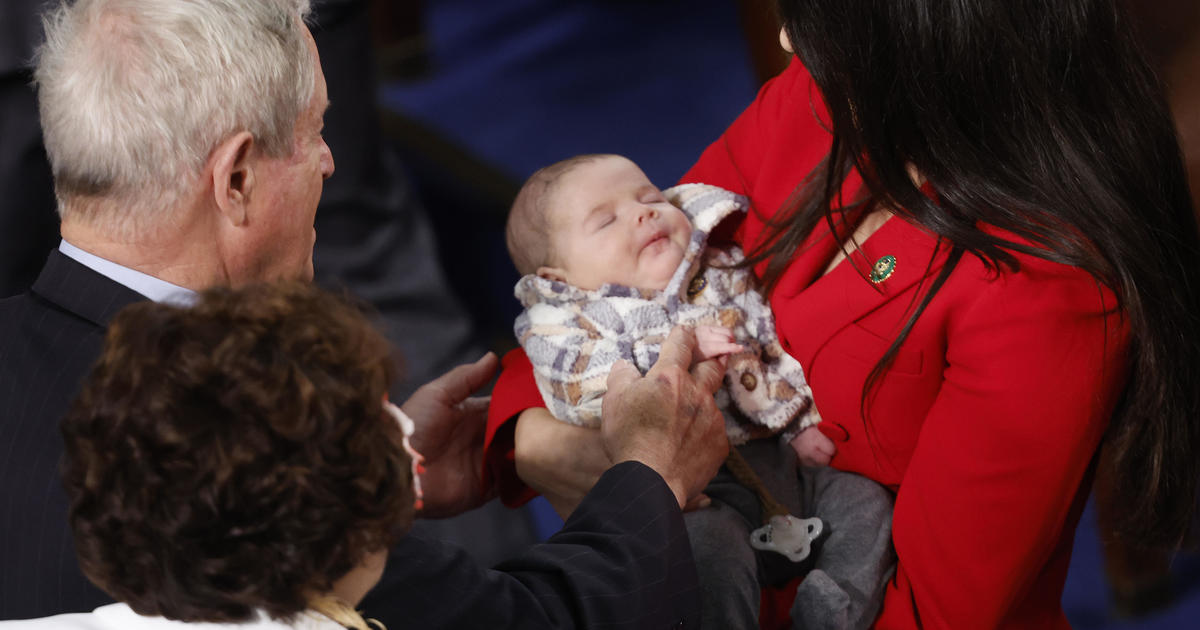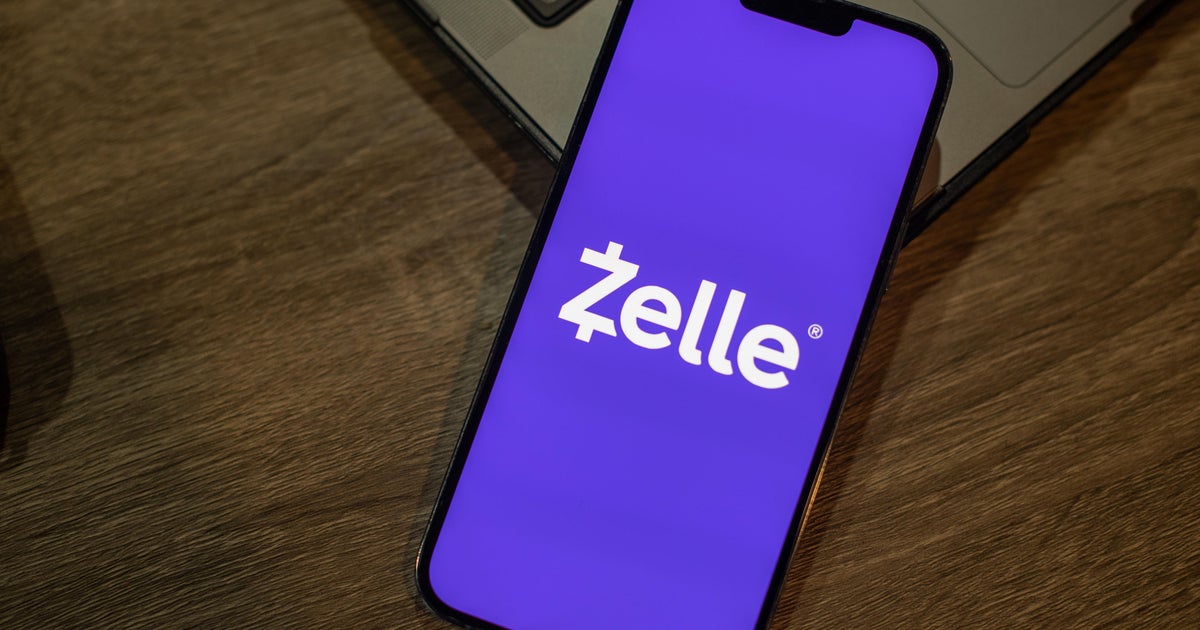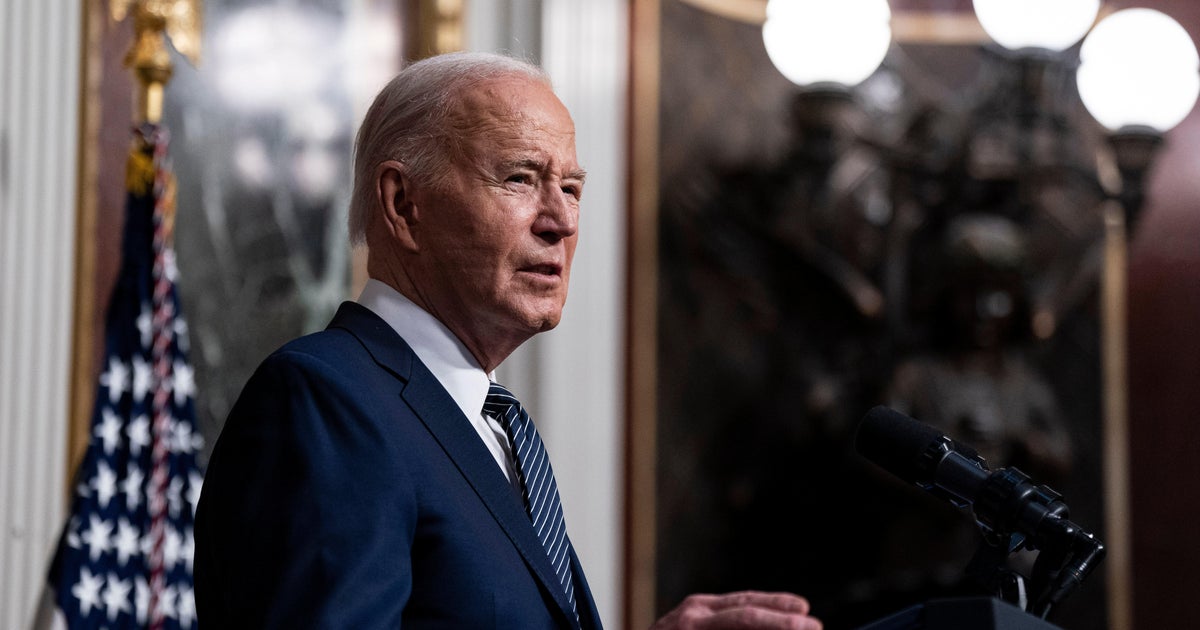CBS News
U.S. House moms seek rules change to vote remotely after childbirth

The room was especially chilly and filled with bright lights. And it was noisy. But Rep. Anna Paulina Luna‘s baby boy was quiet, content and snuggled beneath a blanket in his black stroller, not far from mom.
Luna, a Republican serving her first-term representing the Clearwater, Florida area, was staging a news conference, making a case to change U.S. House rules. Luna has proposed a true Congressional rarity: A bipartisan bill that unites some of the House’s most fiery Republican and Democratic flamethrowers.
Luna wants the House to allow its members who are new mothers to be permitted to vote by proxy — remotely from home — during the first six months of their babies’ lives. In a bill she introduced last week, Luna proposes formally loosening House restrictions, which require its members to be inside the House chamber to cast votes on any bills.
“To date, only 12 women in history have ever given birth while serving in this body,” Luna said. “That’s less than 0.1% of members who’ve come through the doors of this institution. This place is completely out of touch with average Americans.”
Anna Moneymaker / Getty Images
Luna, 34, said she suffered from preeclampsia while pregnant, and experienced other complications after her son was born in August. She also developed mastitis and had to go onto antibiotics and blood pressure medications. The delivery and her health condition prevented Luna from reliably being able to attend House sessions and vote, amid a series of high-stakes matters on the federal budget and the first-ever ouster of a U.S. House speaker.
Her proposal comes just 13 months after House Republicans spiked a pandemic-era initiative allowing proxy voting for any member of the U.S. House in 2021 and 2022. Republicans celebrated the end of the proxy system, arguing it had been abused by some House members who skipped voting in-person to attend fundraisers or personal events.
It was Luna’s former Republican leader, Kevin McCarthy, who championed the elimination of proxy voting for all members after the 2022 elections. McCarthy posted on social media, “No more proxy voting. Effective immediately, Members of Congress have to show up to work if they want their vote to count.”
Luna and her supporters said an exception, and a restoration of the proxy system, should be made for new mothers.
Courtesy of Anna Paulina Luna’s office
Democratic Rep. Sara Jacobs of California, 34, who co-sponsored Luna’s legislation said Congress needs to be more accessible to young parents and women of child-bearing age. Jacobs described undergoing having her eggs frozen as she began her service in Congress.
“I knew that the process of freezing my eggs was still easier than having a child during that time,” Jacobs said. “I represent San Diego, which means I’m on a roundtrip flight for 12 hours, doing that during a third trimester would be a big challenge. We all know that just like pregnancy and childbirth, the voting schedule can be unpredictable.”
Luna’s press conference announcing the proposal drew a uniquely bipartisan group of colleagues, including Republican Rep. Matt Gaetz of Florida, a fiery supporter of former President Donald Trump, and Democratic Rep. Jared Moskowitz of Florida, an ardent critic of Trump’s and GOP leadership.
Moskowitz said Luna’s proposal is vital as the average age of members of Congress continues to become younger.
“As the times change, so must the rules in the House of Representatives,” Moskowitz said. “With the House already having the previous capability to allow proxy voting, parents who are taking care of their children during the first 30 days should be allowed to vote proxy.”
A Pew research report said the median average of House members dropped from 59 years to 57.9 years in 2023 at the beginning of the 118th Congress.
“We shouldn’t force new mothers in Congress choose between serving their constituents and caring for their newborn child,” said Republican Rep. Tim Burchett of Tennessee.
Spokespeople for House Republican leadership did not respond to requests for comment last week about Luna’s proposal.
In June, a group of House Democrats issued a statement blasting House leaders for eliminating proxy voting earlier this year. The statement said, “Republicans’ elimination of proxy voting in the 118th Congress has restricted the ability of lawmakers to perform one of their core duties and represent the people they are elected to serve in the event of unexpected personal or family illnesses that prevents them from traveling to the Capitol to vote in person.”
CBS News
How can Congress avoid a government shutdown?

Watch CBS News
Be the first to know
Get browser notifications for breaking news, live events, and exclusive reporting.
CBS News
Mayorkas warns of serious consequences if government shutdown happens

Watch CBS News
Be the first to know
Get browser notifications for breaking news, live events, and exclusive reporting.
CBS News
Feds sue Zelle, alleging that nation’s biggest banks failed to stop fraud

Three Major banks and Zelle rushed to bring a peer-to-peer payment network to market without first ensuring users would be protected against “widespread” fraud, alleges a lawsuit filed on Friday by the Consumer Financial Protection Bureau.
Bank of America, JPMorgan Chase and Wells Fargo ignored customer complaints related to Zelle, users losing hundreds of millions of dollars in scams, the regulatory agency alleges. Zelle is run by Early Warning Services, which is owned by the three banks named in the CFPB’s suit, along with four other financial institutions.
According to the CFPB, bank customers have lost more than $870 million over the seven years Zells has been in operation. Early Warning and the three banks named in the complaint hastily created the payments network to head off rival payment apps including Venmo and CashApp without adequately protecting end users, the suit alleges.
“The nation’s largest banks felt threatened by competing apps, so they rushed to put out Zelle,” Rohit Chopra, the CFPB’s director, said in a statement. “By their failing to put in place proper safeguards, Zelle became a gold mine for fraudsters, while often leaving victims to fends for themselves.”
Zelle blasted the CFPB’s accusations as “legally and factually flawed,” with a spokesperson also suggesting the timing of the suit as “driven by political factors unrelated” to the company.
JPMorgan also accused the agency of pursuing a “political agenda,” stating that the agency was “overreaching its authority by making banks accountable for criminals, even including romance scammers.”
JPMorgan Chase said it prevents nearly $20 billion in fraud attempts each year, and that 99.95% of its transactions are completed without dispute.
A spokesperson for Wells Fargo declined to comment. Bank of America did not immediately respond to a request for comment.
Offered by more than 2,200 banks and credit unions, Zelle has more than 143 million users in the U.S., according to the suit. Customers transferred a total of $481 billion in conducting 1.7 billion transactions during the first half of 2024, the CFPB noted.
Hundreds of thousands of customers filed fraud complaints and were denied assistance by Zelle and the three banks, according to the suit, which noted that some people were advised to contact those behind the fraud to get their money back.
Zelle “has been slow to implement anti-fraud measures, including closing accounts accused of fraud,” Jaret Seiberg, an analyst with TD Cowen Washington Research Group, said in a report, pointing to the CFPB’s allegations. “It also permitted the registration of emails that were impersonating legitimate entities, including Zelle itself.”
Since Zelle launched in 2017, according to the CFPB, JPMorgan Chase received 420,00 customer complaints involving more than $360 million; Bank of America heard from 210,000 customers with more than $290 million in fraud losses; and Wells Fargo tallied $220 million in fraud losses by 280,000 people.
In 2023 Early Warning began refunding money to an undisclosed number of fraud victims amid pressure from lawmakers. In late 2022, Sen. Elizabeth Warren issued a report that found increasing incidents of fraud and scams to be occurring on the popular payment app, with large banks typically reluctant to compensate victims, the Massachusetts Democrat said.











